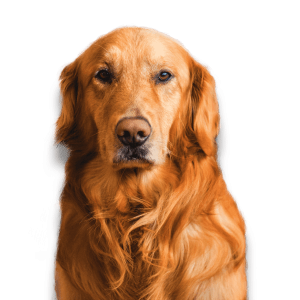
Why is it important?
To have healthy and well developed puppies, their mum needs to have all her needs met (as do the puppies inside her!). It probably goes without saying, but if you do not want your bitch to get pregnant then we suggest taking her to the vets to be spayed - she could easily be caught in season, even if you keep a watchful eye on her. Hopefully this blog will help guide you through some of the most important things to look out for and how to give your bitch everything she needs whilst she is pregnant.
Dog pregnancy
Pregnancy in the dog lasts around 9 weeks. Both late pregnancy and lactation is a big drain on the mum’s system and to get the healthiest outcome for all we have to help her throughout her entire pregnancy.
Signs of pregnancy
There are very few signs at first. If your dog was “caught” accidentally or mated during her season then the fastest way to tell if she is pregnant is by taking her to your vet. They can do an ultrasound scan at 3 weeks post mating and see if there are any foetuses. Before 3 weeks, the scan won’t be conclusive. Later on, her tummy will get bigger and so will her nipples and mammary glands.
Every entire female dog will have a pseudopregnancy after every season - she may not show any signs but also she may act exactly like she is pregnant! Her tummy will not get any bigger but her mammary glands will enlarge and she may start nesting too. This is why it is important to have your vet check the pregnancy at an early stage.
Diet
When a dog is pregnant she needs extra energy, vitamins, and minerals for the growing puppies and herself. To provide all of this, it is often helpful to transition her onto a puppy diet. Do this gradually over about 10 days so you don’t upset her tummy.
You don’t want her to lose any weight, but you also don’t want her to become overweight because this can make birth more difficult. So we suggest asking your vet for advice about how much to feed your dog during her pregnancy.
Vaccination
Being up to date with vaccinations will not only protect the mother but also her puppies. Many of the diseases we vaccinate against can cause abortion. Not only that, if your dog is up to date with her vaccinations, then she will pass on that all important immunity to her pups in her milk, to protect them until at 8 weeks or so they can have their own vaccinations.
Worming
Worming treatment is key to puppy and bitch health during pregnancy. Worms can be passed to the puppies both over the placenta and in the milk. The best way to protect them is by regular worming with a proven safe product from your vet.
Exercise
Keeping your dog’s fitness up during her pregnancy is paramount for a successful natural birth. Regular short walks are the best way to achieve this, especially as she comes into late pregnancy as she will get tired more easily. 5 short walks a day is much better than 1 long walk as this helps to maintain her fitness without overexerting her.
Nesting
She will need a safe place to relax and give birth. This place needs to be private and quiet, somewhere she can go where she will not be disturbed. You can make this using a large cardboard box and plenty of bedding.
Whelping
Labour (also called whelping) is signalled by the dog being restless, digging in her nest, needing to urinate more often and panting. She will then begin to have contractions and you will see a green discharge from the vulva. Usually, she will get on with labour herself successfully if left undisturbed. However, if she has green discharge and has been straining unproductively for 1 hour then you need to contact your vet as soon as possible. Medical or surgical intervention will likely be needed for the best puppy survival chances.
Caring for the newborns
In most cases, your dog will look after them herself. However, occasionally there may be complications, or she may even reject them. It is important to be ready to step in if needed. Newborn puppies need to be kept warm and gently rubbed dry, if the mother isn’t licking and caring for them. Puppies do of course need milk, but do not attempt to feed cow’s milk - they need dog milk, which your vet will be able to provide if needed as a powdered formula.
If they seem to be abandoned, it’s important to get them and the mother checked over by your vet as soon as possible, as there may be an underlying medical problem in one or the other.